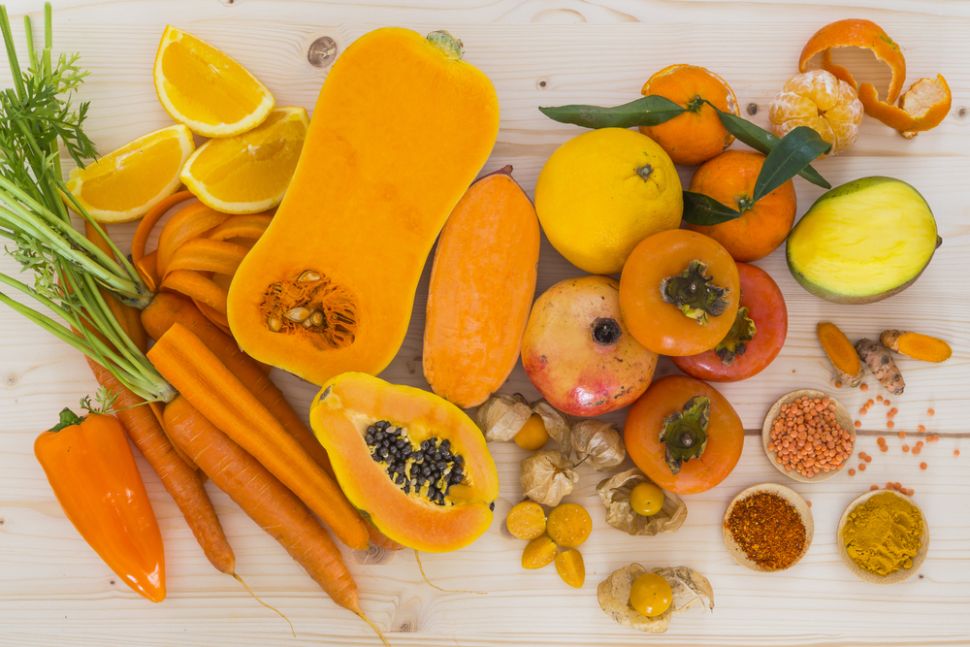Source: Thailand Medical News Dec 15, 2019 6 years, 6 days, 3 hours, 55 minutes ago
A new study conducted by researchers from The College of Public Health of Qingdao University, China, involving populations both in China and US found that an inverse association exists between dietary
carotenoid intakes and
hypertension in adults. The recommended total
carotenoids intake is at least 100 μg/kg per day for the general adult population.

Dr Li Zhaoying, co auther of the study told
Thailand Medical News, “For the study, 17,398 adults aged ≥20 years were identified. In crude results, high-dose β-carotene, lycopene, lutein with zeaxanthin, and total carotenoids were significantly associated with a reduced risk of
hypertension or high blood pressure.”
Carotenoids are plant pigments responsible for bright red, yellow and orange hues in many fruits and vegetables. These pigments play an important role in plant health. People who eat foods containing
carotenoids get protective health benefits as well.
Carotenoids are a class of phytonutrients (plant chemicals) and are found in the cells of a wide variety of plants, algae and bacteria. They help plants absorb light energy for use in photosynthesis. They also have an important antioxidant function of deactivating free radicals single oxygen atoms that can damage cells by reacting with other molecules.
Carotenoids also act as antioxidants in the human body. They have strong cancer-fighting properties. Some
carotenoids are converted by the body to vitamin A, which is essential to vision and normal growth and development.
Carotenoids also have anti-inflammatory and immune system benefits and are sometimes associated with cardiovascular disease prevention.
Carrots, yams, sweet potatoes, papaya, watermelon, cantaloupe, mangos, spinach, kale, tomatoes, bell peppers and oranges are among the fruits and vegetables in which
carotenoids can be found.
Humans and animals cannot manufacture
carotenoids themselves; they have to get it in their diets.
Carotenoids need to be consumed with a fat in order for the body to absorb them.
There are more than 600 types of
carotenoids. The most common ones in the Western diet, and the most studied, are alpha-carotene, beta-carotene, beta-cryptoxanthin, lutein, zeaxanthin and lycopene,
For the study, in the multivariate-adjusted model, the highest vs lowest quartile intakes of dietary
carotenoid correlated with a reduced hypertension risk, with odds ratios of 0.79 (95 percent confidence interval [CI], 0.67–0.93) for β-cryptoxanthin, 0.85 (95 percent CI, 0.73–0.98) for lycopene, 0.69 (95 percent CI, 0.58–0.83) for lutein with zeaxanthin, and 0.73 (95 percent CI, 0.62–0.86) for total
carotenoids.
Also dose–response analyses revealed an inverse association between all
carotenoids and hy
pertension in a linear manner. Moreover, total
carotenoids at 100 μg/kg per day displayed a significant reduction in the risk of
high blood pressure.
This cross-sectional study used data from the National Health and Nutrition Examination Survey 2007–2014. Data on dietary
carotenoids were obtained from 24-h dietary recall interviews.
Hypertension was defined as systolic
blood pressure ≥130 mm Hg or diastolic
blood pressure ≥80 mm Hg, taking antihypertensive treatment, or self-report.
The associations of α-carotene, β-carotene, β-cryptoxanthin, lycopene, lutein with zeaxanthin, and total
carotenoids from diet and supplements with
hypertension were explore using logistic regression models and restricted cubic spline models.
Total
carotenoids showed significant reductive risk of
high blood pressure at 100 μg/kg per day and over.
Reference : Association between dietary carotenoid intakes and hypertension in adults
National Health and Nutrition Examination Survey 2007–2014
Li Zhaoying; Chen Jiahao; Zhang Dongfeng, Journal of Hypertension:
doi: 10.1097/HJH.0000000000002200
